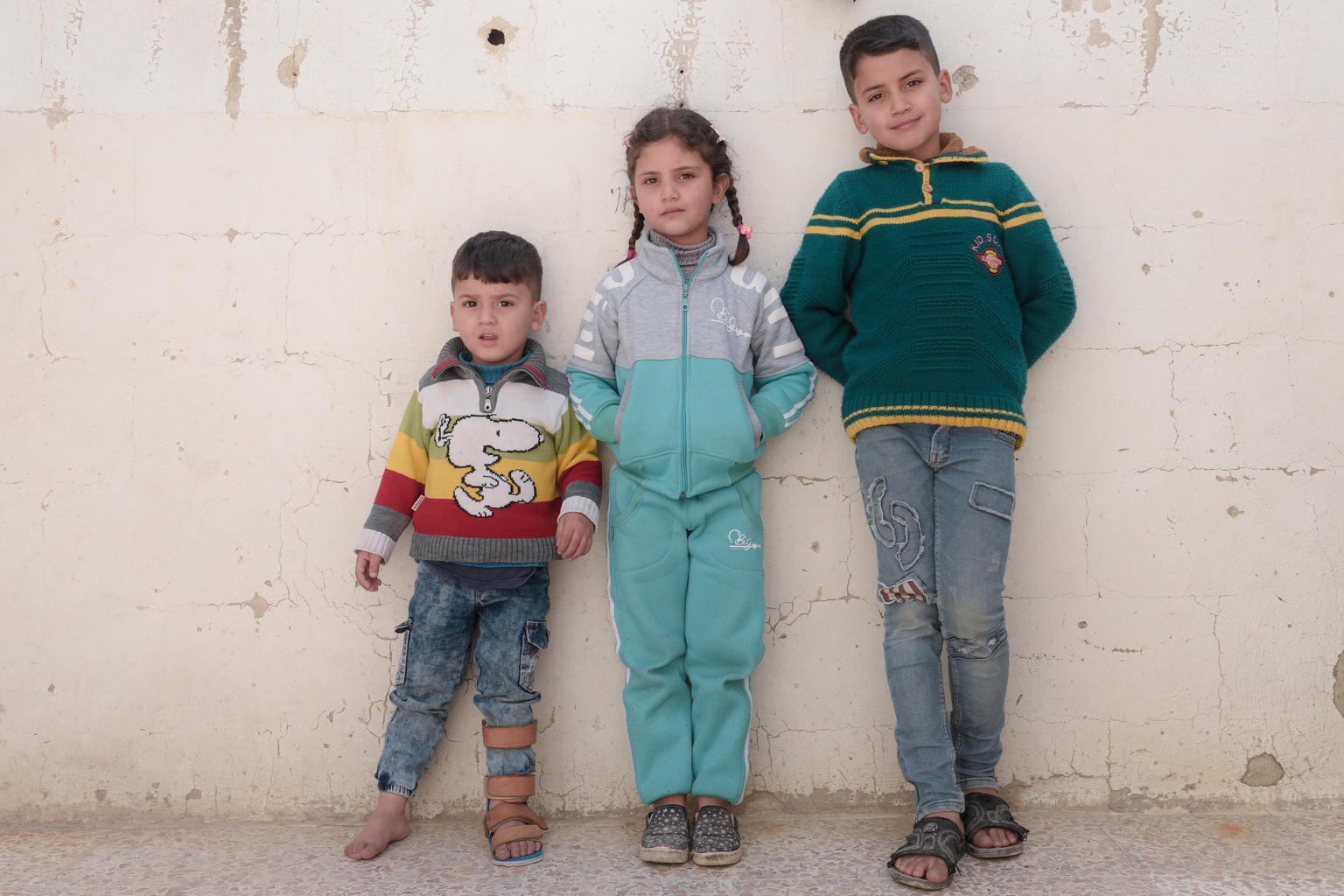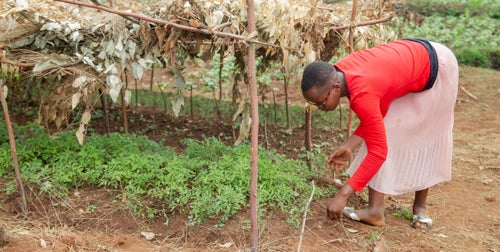Seven years ago, a young mother named Haifa and 50 members of her extended family fled escalating violence in the city of Erbin and settled on a farm in the suburbs where they hoped they'd be safe.
"I remember gathering around a fire with the other women, making tea, when the sounds of bombing got closer," Haifa recalls. "My gut feeling told me to carry my son indoors. Just as I did, a shell hit the exact area where he was playing."
Haifa was six months pregnant at the time. Many of her relatives were killed that day. Haifa, and her then 3-year-old son, Anwar, were severely injured.
Haifa and Anwar were rushed to a hospital in a nearby town. In one room, doctors were trying to save Anwar's life. He had shrapnel all over his body; his pelvis was broken and his aortic artery severed. In the other room, doctors prepared Haifa for surgery.
"When I told the doctors I was pregnant, they assumed the baby was dead because of all the shrapnel that hit my abdomen," Haifa recalls. "When she kicked, we all started crying."
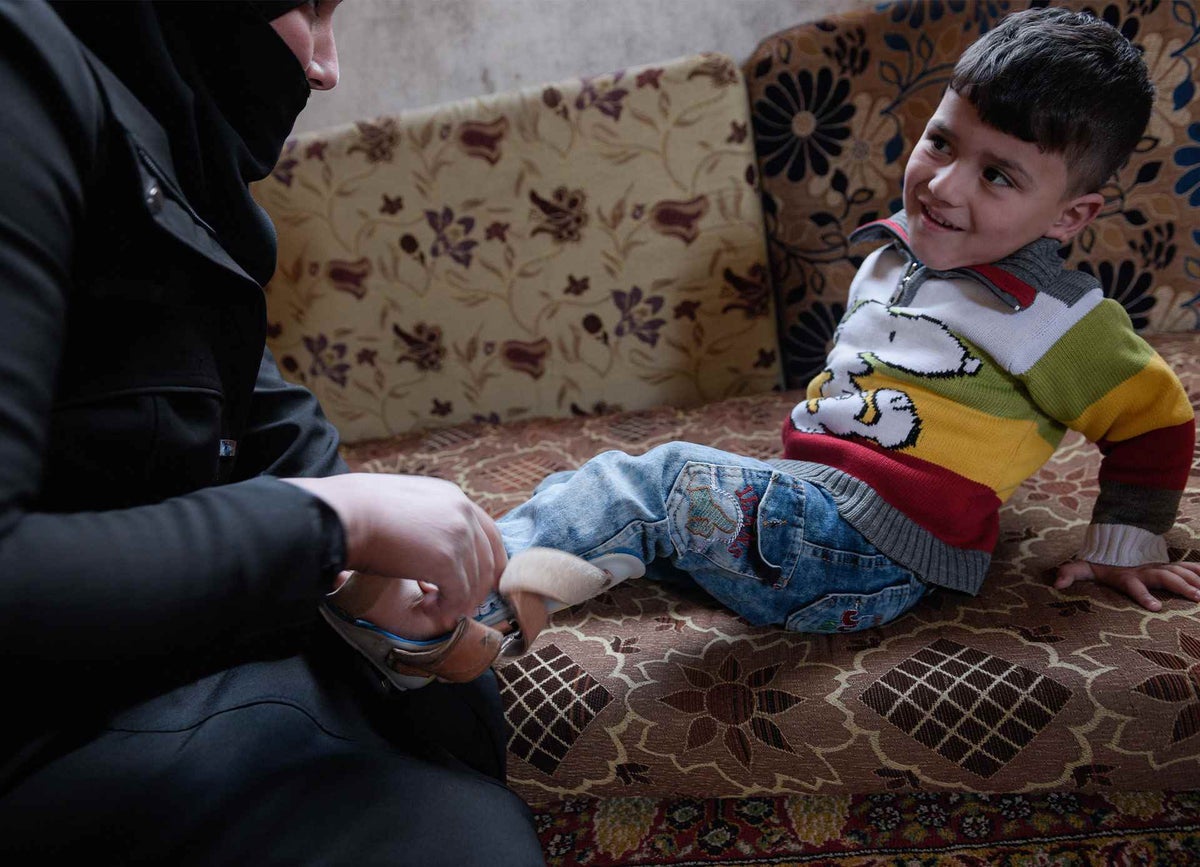
The Syrian refugee crisis remains the largest displacement crisis in the world. More than 6 million Syrians remain internally displaced inside the country, including 2.5 million children.
Almost a decade on, continued violence – and now the coronavirus pandemic – has further worsened the situation. Millions of children are out of school and struggling to recover from the horrors they have witnessed.
Today, 31-year-old Haifa is back in Erbin, living in a one-room structure on the rooftop of a building with her husband and three children: nine-year-old Anwar, six-year-old Nada and three-year-old Mohammad.
"For years, we did not know the feeling of being full; we ate the bare minimum to survive."
The room they call home is very sparsely furnished, with old carpets that barely cover half of the cold cement floor. In the centre of the room is a small woodburning stove, their only source of warmth during the bitter cold winter months.
Every day, the children go on a scavenger hunt, looking for rags or pieces of plastic they can burn for warmth, despite the resulting poisonous fumes.
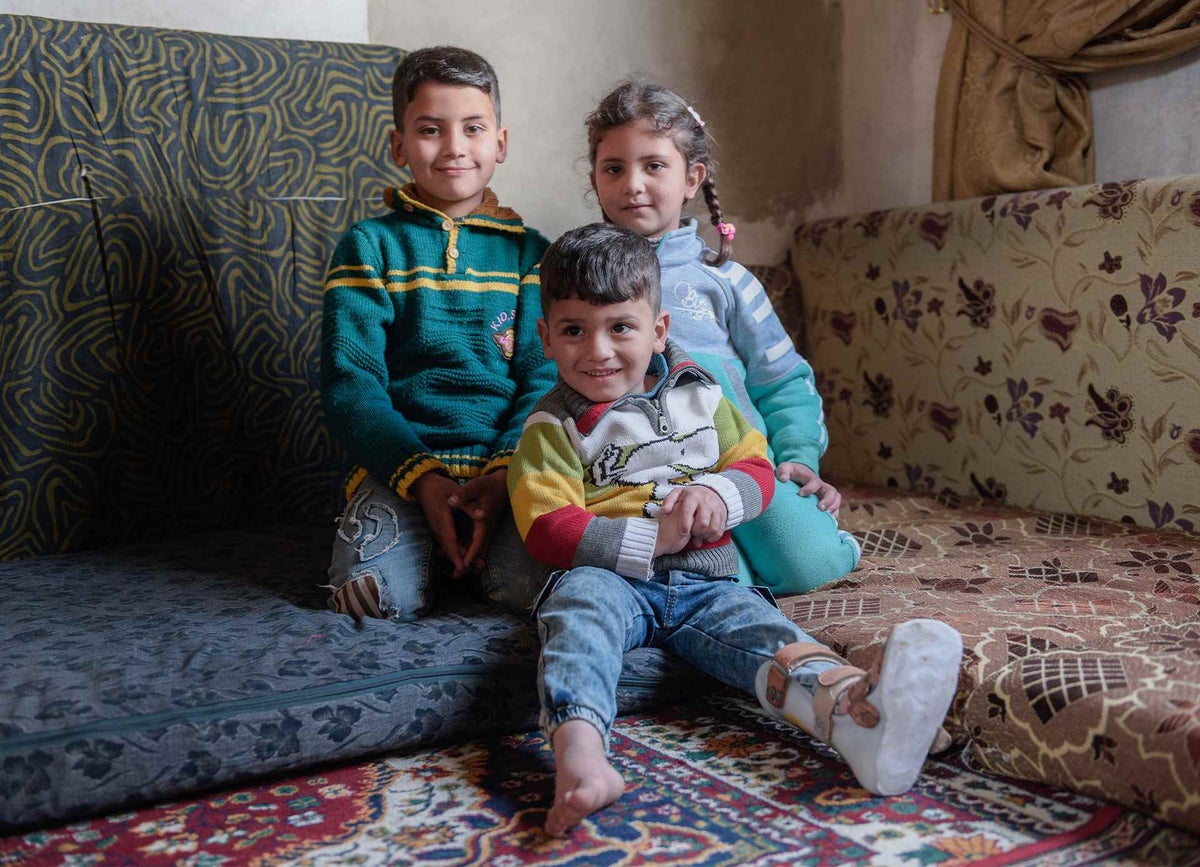
For many years after the bombing attack, Haifa and her family continued to live under siege in Eastern Ghouta. "I will never forget the days my children would ask me for food while I had absolutely nothing to give them," she recalls. Sometimes, she cooked grass as a meal for her family.
"For years, we did not know the feeling of being full; we ate the bare minimum to survive."
Last winter, UNICEF supported more than 4,800 children in Syria, including Haifa's, with cash assistance. This life-line helps families provide their children with warm winter clothes, food, education and other necessities.
Cash assistance can make life a little easier for families like Haifa’s, giving mothers the agency to make choices on how best to provide for their children.
As part of UNICEF’s response, we continue to reach children inside Syria with safe water, education, health care and protection against deadly diseases. But more help is needed.
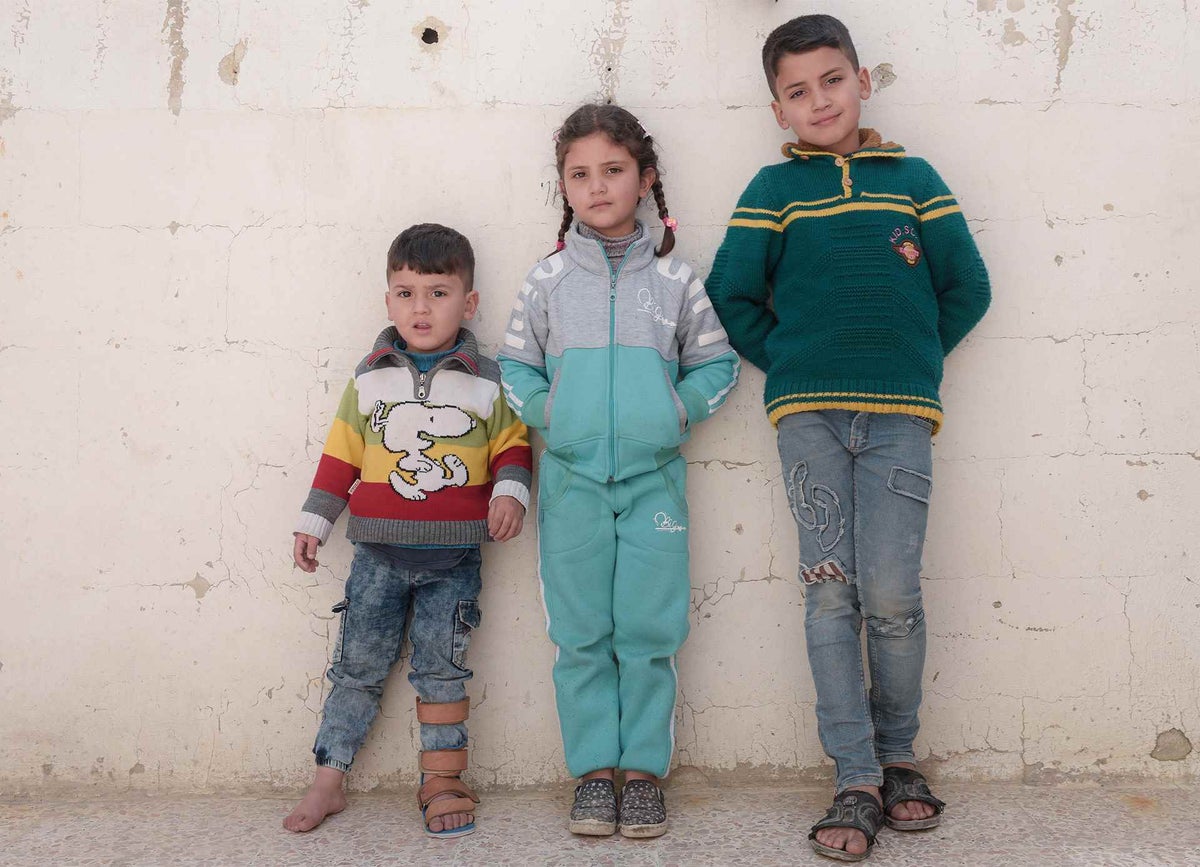
Haifa's children also bear the brunt of a war not of their own making. A lack of proper nutrients stunted Nada's growth. A shell hit the family's house when Mohammad was only six months old, leaving him with brain damage and partially paralysing the left side of his body.
Despite everything she has been through, Haifa smiles hopefully and of course has no choice but to continue to do the absolute best for her children, hoping to help them make a better future for themselves.
"I wake up every morning thankful to have survived everything I've been through," she says.
"I believe that tomorrow will be better."
Stand by children in 2021
Whilst it may be warm in Australia, it is again winter in Syria and across the middle east. With temperatures plummeting below freezing across much of the region, children like Anwar, Nada and Mohammad are in urgent need of warm clothes, food, safe water and protection against deadly disease. And we need your help.
Every day our staff are on the ground, doing whatever it takes to get supplies to children fast. That means that every day we need people like you to fuel our engines and get our teams on the road.
As a UNICEF Global Parent, you can give children the basics they need and deserve. Your support provides us with the steady funds to invest in long-term solutions, making a lasting impact for children.
Show children that you’re there with them. No matter what.
Related articles
Stay up-to-date on UNICEF's work in Australia and around the world



